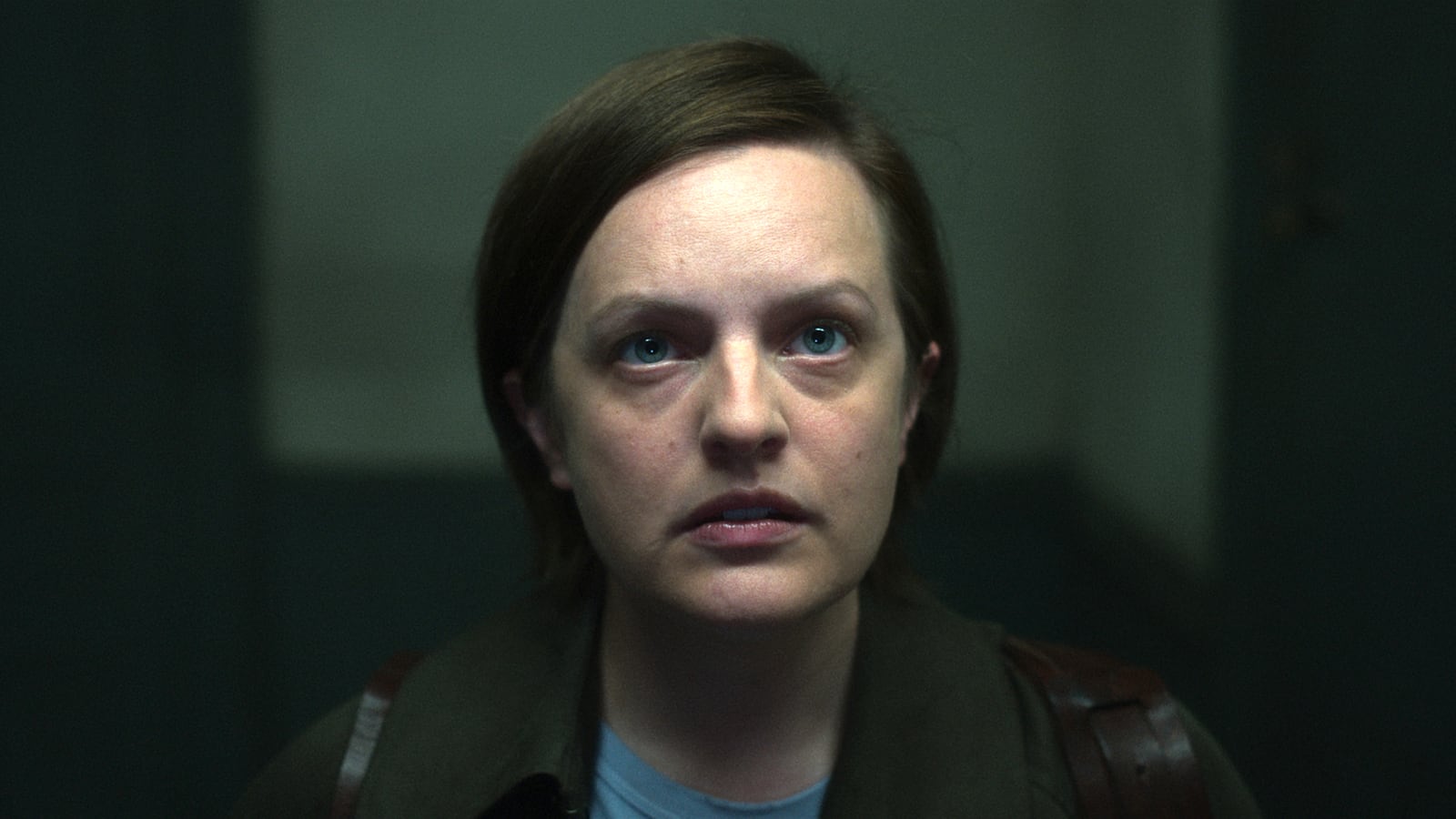If you’ve missed Elisabeth Moss’s trademark furious stare-to-camera, Apple TV+’s Shining Girls might be for you. A word of warning, however: You’ll never find out what a “shining girl” is, or really, how they came to exist in the first place. By the end, that’ll probably be the least of your concerns.
Part gritty detective thriller, part multi-verse sci-fi, and part trauma survival drama, Shining Girls adapts Lauren Beukes’ 2013 novel into an eight-episode arc that takes some major departures from its source material. Moss plays Kirby, an assault survivor and Chicago Sun-Times archivist who insists on getting involved in a colleague’s reporting on a murdered woman whose attack bears striking similarities to her own.
The problem? Kirby’s reality has been unstable since her assault years ago. Sometimes she wakes up to discover that her cat, Grendel, has transformed into a beefy pit bull. Sometimes she wakes up married to a co-worker. Sometimes she arrives home only to find out she no longer lives in her apartment—and, more ominously, that she never did.
Multi-verses, a certain Will Ferrell character might say, are so hot right now. As Russian Doll returns with a new season Netflix and Everything Everywhere All at Once takes victory laps at the box office, Shining Girls’ premise feels incredibly timely. Still, viewers might find themselves wishing that the execution lived up to its premise.
As skilled as Moss has become at making a meal out of outsmarting and outlasting heinous men—be they lewd and lascivious bosses on 1960s Madison Avenue or theocratic fascists in a dystopian alternate reality—any hero is only as compelling as the trials they overcome. And in this case, the villain is both vaguely written and bizarrely benign. It’s not just him, either; the circuitous, tiresomely-stretched-out series fails to establish any real characters beyond its protagonist.
Kirby’s attacker, a man named Harper, is a nightmare on paper: a serial killer who never seems to age, and whose records seemingly no one can track down. Kirby is the only survivor of his grisly attacks, characterized both by their brutality and the distinctive pattern in which the assailant slices the women’s bodies open, from chest to stomach. Why, then, is it so impossible to feel even a little afraid of him when we finally meet him?
Actor Jamie Bell plays our mysterious killer with unsettling smoothness, but he never comes close to reaching the menace his character desperately needs. Harper’s backstory, vague at best and nearly inscrutable at worst, does him few favors, and his motivations are tough to discern until Kirby articulates them in helpful expository fashion at the very end.
Oh—and even after we get to the root of Harper’s preternatural killing abilities, it’s still not entirely clear how the mechanism behind them came to be or how it actually works. Maybe these dangling threads will serve as a jumping-off point for a potential second season—or maybe they’ll just piss people off.
Perhaps most frustrating about Shining Girls, however, is the degree to which it wastes strong, accomplished performers on underbaked characters.
Moss’s refusal to phone anything in shines as brightly as ever, but her story here feels less like a new destination than a faded slideshow of places she’s taken us before. Hamilton alum Phillipa Soo plays an astronomer whose public presentations double as metaphysical exposition dumps. She has no discernible personality beyond eventually becoming a foil to Kirby when her reality starts to unravel in the same fashion. Narcos’ Wagner Moura, who plays the droopy-faced alcoholic reporter Dan, has the meatiest role after Moss, and he plays it with admirable dimension—one minute he’s frowning at a corpse in a sewer, and the next he’s getting blitzed beyond all recognition at a bar. Even that performance, however, feels oddly subdued.
In fact, every facet of Shining Girls feels a little too restrained. The series might bill itself as a mystery-thriller, but its tone often feels more procedural. Aesthetically, it’s more Law & Order than Zodiac; the blue-and gray-filtered Chicago cityscape is more drab than gritty, cold but never chilling. As successful as this series might be intellectually, it also fails to establish the lurching anxiety necessary to actually grip its audience by the gut. In the absence of that tension, we’re left with another lackluster thriller that never shines as brightly as it could.







